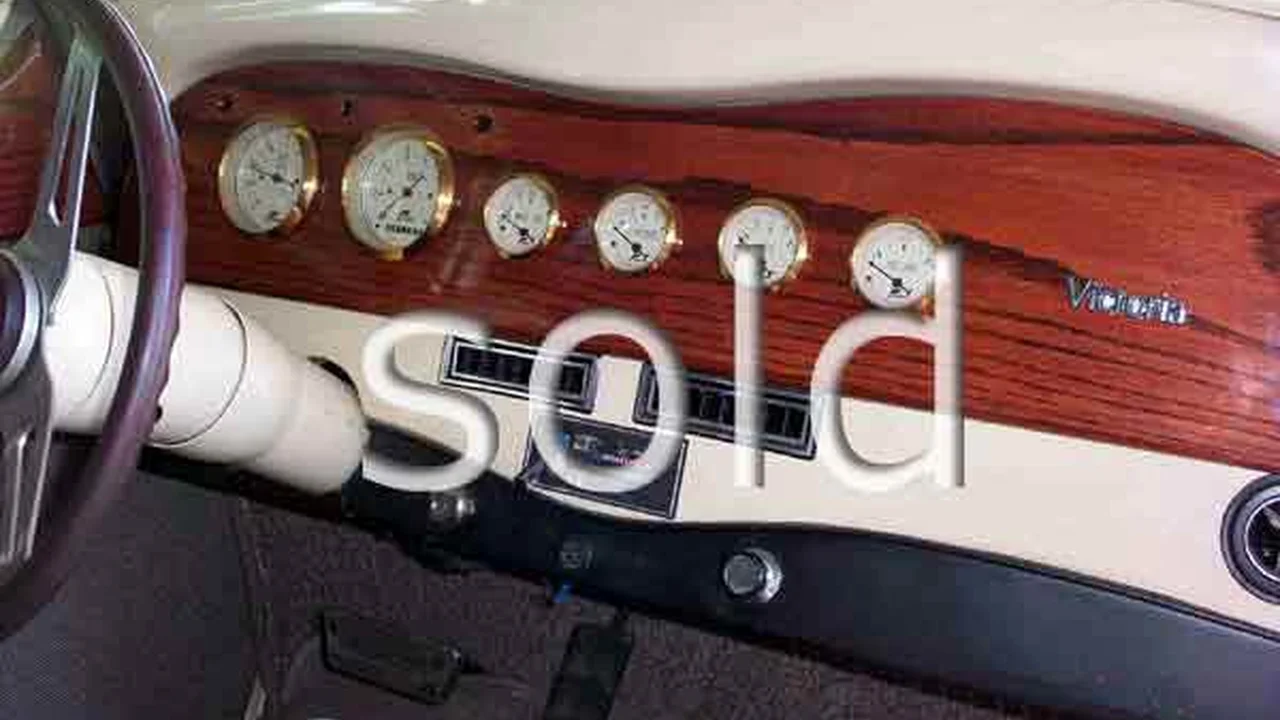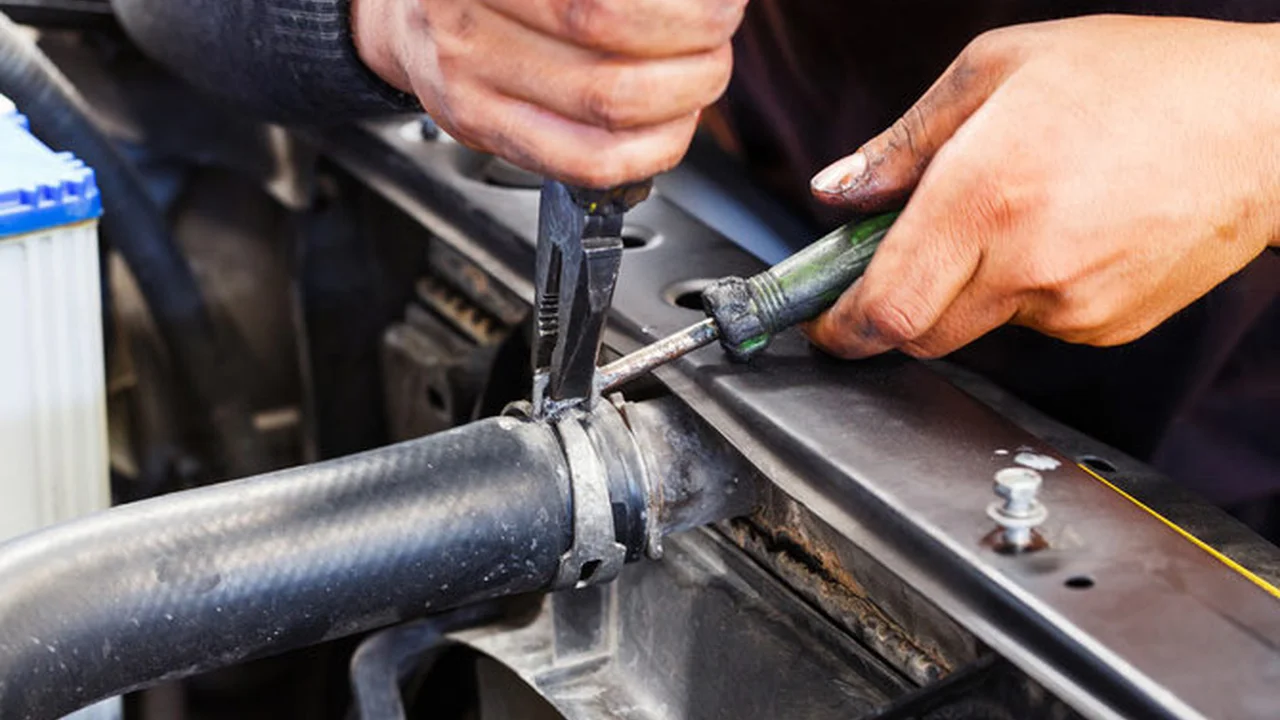Avoiding Scams When Buying Classic Car Parts Online
Discover the top online marketplaces to find rare and authentic parts for your classic car restoration project. Compare features, prices, and user reviews. Ensure you get the right parts to complete your restoration.

Understanding the Risks of Online Classic Car Part Purchases
Let's face it, the internet is a fantastic resource for finding just about anything, including those elusive classic car parts you've been searching for. But, just like any online marketplace, the world of classic car parts isn't without its share of shady characters. Scammers are out there, ready to prey on unsuspecting enthusiasts eager to get their projects back on the road. The good news is, with a little knowledge and caution, you can significantly reduce your risk of getting ripped off. We're here to arm you with the information you need to shop smart and keep your hard-earned cash safe.
Red Flags to Watch Out For: Identifying Potential Classic Car Part Scams
So, how do you spot a scammer? Here are some key red flags that should raise your suspicion:
- Unbelievably Low Prices: If a deal seems too good to be true, it probably is. Scammers often lure victims with prices far below market value. Compare prices across multiple sources to get a realistic idea of what the part should cost.
- Pressure Tactics: Be wary of sellers who pressure you to make a quick decision. Phrases like "limited time offer" or "last one available" are often used to create a sense of urgency and prevent you from doing your research.
- Poor Communication: Scammers often have poor grammar, spelling errors, and inconsistent communication. They may also be reluctant to answer specific questions about the part or its history.
- Requests for Unusual Payment Methods: Avoid sellers who insist on using unconventional payment methods like wire transfers (Western Union, MoneyGram) or gift cards. These methods are difficult to trace and offer little to no buyer protection.
- Lack of Detailed Information: A legitimate seller will provide detailed information about the part, including its condition, manufacturer, part number (if applicable), and any known flaws. Be suspicious of listings with vague descriptions or blurry photos.
- No Contact Information or Physical Address: A reputable seller will provide a phone number, email address, and physical address. If the seller is only reachable through a generic email address or a messaging system, proceed with caution.
- Negative Reviews or Lack of Feedback: Check the seller's reputation on online marketplaces and forums. Look for negative reviews or complaints about fraudulent activity. A lack of feedback can also be a red flag, especially if the seller is offering high-value items.
Verifying Seller Legitimacy: Due Diligence for Classic Car Part Buyers
Don't just take the seller's word for it. Take the time to verify their legitimacy before making a purchase:
- Check Online Reviews and Feedback: Search for the seller's name or business name online to see if there are any complaints or negative reviews. Pay attention to comments about authenticity, shipping, and customer service.
- Use Reputable Marketplaces: Stick to well-known online marketplaces with buyer protection policies. These platforms often have systems in place to resolve disputes and protect buyers from fraud. Examples include eBay Motors, Hemmings, and ClassicCars.com.
- Request Additional Photos and Information: Ask the seller for more photos of the part, including close-ups of any markings or serial numbers. Request detailed information about the part's history and condition.
- Contact the Seller Directly: Call the seller on the phone to ask questions and get a feel for their knowledge and professionalism. A legitimate seller will be happy to answer your questions and provide additional information.
- Verify Part Numbers and Authenticity: If possible, verify the part number with the manufacturer or a trusted source. Research the part's history and identify any potential red flags.
- Consider a Third-Party Inspection: For high-value parts, consider hiring a third-party inspector to examine the part in person. An experienced inspector can verify the part's authenticity and condition.
Secure Payment Methods: Protecting Your Finances When Buying Classic Car Parts
Choosing the right payment method is crucial for protecting your finances. Here are some secure options:
- Credit Cards: Credit cards offer strong buyer protection. If you're a victim of fraud, you can dispute the charge with your credit card company.
- PayPal: PayPal offers buyer protection for eligible purchases. If you don't receive the item or it's significantly different from the description, you can file a dispute and potentially get your money back.
- Escrow Services: Escrow services act as a neutral third party to hold funds until the buyer receives the item and is satisfied with its condition. This is a good option for high-value transactions.
Avoid these payment methods: Wire transfers (Western Union, MoneyGram), gift cards, and cash. These methods offer little to no buyer protection and are often preferred by scammers.
Specific Product Recommendations and Comparisons: Examples of Classic Car Part Scams and How to Avoid Them
Let's look at some specific examples of classic car parts and how scammers might try to exploit buyers:
Example 1: NOS (New Old Stock) Carburetor
The Scam: A seller advertises a "brand new, never used" NOS carburetor for a rare classic car at a price that seems just a bit too good to be true. The listing features blurry photos and vague descriptions. When you inquire, the seller pressures you to buy it immediately before someone else does.
How to Avoid It:
- Demand High-Resolution Photos: Ask for clear, high-resolution photos of the carburetor from all angles, including close-ups of any markings, date codes, and the original packaging (if available).
- Verify the Part Number: Research the correct part number for your specific car model and year. Compare the part number on the carburetor to the official documentation.
- Check Seller Feedback: Thoroughly examine the seller's feedback history. Look for any complaints about misrepresented items or fraudulent activity.
- Use PayPal or a Credit Card: Pay with a credit card or PayPal for buyer protection. Avoid wire transfers or other unsecured payment methods.
- Consider an Expert Opinion: If possible, consult with a carburetor specialist or a classic car expert to get their opinion on the authenticity of the carburetor.
Example 2: Rare Trim Pieces (e.g., Grille, Emblems)
The Scam: A seller offers a rare and highly sought-after trim piece for a classic car at an inflated price. The listing claims the piece is "original" and "in perfect condition," but the photos are limited and don't show close-up details. The seller insists on a cash payment.
How to Avoid It:
- Compare Prices: Research the market value of the trim piece by checking prices on multiple online marketplaces and auction sites. Be wary of sellers who are significantly overcharging.
- Ask for Detailed Photos and Dimensions: Request detailed photos of the trim piece from all angles, including close-ups of any markings, imperfections, and mounting points. Ask for precise dimensions to ensure it's the correct size for your car.
- Request Proof of Authenticity: Ask the seller for any documentation or proof of authenticity, such as original receipts or certificates.
- Never Pay Cash: Avoid paying cash for online purchases. Use a credit card, PayPal, or an escrow service for buyer protection.
- Consider a Personal Inspection: If possible, arrange to inspect the trim piece in person before making a purchase. This will allow you to assess its condition and authenticity firsthand.
Example 3: Engine Blocks or Cylinder Heads
The Scam: A seller advertises an engine block or cylinder head with claims of "low mileage" or "recently rebuilt." The listing features stock photos or photos of a different engine. The seller is reluctant to provide specific details about the engine's history or condition.
How to Avoid It:
- Demand Detailed Information: Ask for detailed information about the engine's history, including its mileage, any repairs or rebuilds, and the reason for its removal from the original car.
- Request Specific Photos: Request photos of the engine block or cylinder head showing the casting numbers, date codes, and any visible damage or repairs.
- Consider a Compression Test: If possible, request a compression test to assess the condition of the cylinders.
- Hire a Mechanic for Inspection: Consider hiring a qualified mechanic to inspect the engine block or cylinder head before making a purchase.
- Use an Escrow Service: For large purchases like engine blocks or cylinder heads, consider using an escrow service to protect your funds.
Specific Product Recommendations: Secure Online Marketplaces for Classic Car Parts
While scams can happen anywhere, sticking to reputable platforms significantly reduces your risk. Here are a few recommended online marketplaces:
- eBay Motors: eBay Motors is a vast marketplace with a wide selection of classic car parts. Use their buyer protection policies and check seller feedback carefully.
- Hemmings: Hemmings is a well-respected platform dedicated to classic and collector cars. They have a more curated selection of parts and sellers.
- ClassicCars.com: Similar to Hemmings, ClassicCars.com focuses on classic vehicles and parts.
- Specialty Forums and Clubs: Many classic car clubs and forums have classified sections where members buy and sell parts. This can be a good option for finding rare or hard-to-find items, but exercise caution and verify the seller's reputation.
Examples of Products and Pricing: Protecting Yourself from Price Gouging
Knowing the average price range for a part helps avoid overpaying and identify potential scams. Prices vary greatly depending on condition, rarity, and the specific car model. Here are some example parts and their typical price ranges (these are *estimates* and can fluctuate significantly):
- NOS Ford Mustang 1965-1966 Taillight Assembly: $300 - $800 (depending on condition and packaging)
- Used, Rebuilt Rochester Carburetor for a 1957 Chevrolet Bel Air: $200 - $400
- Original 1969 Camaro Z/28 Steering Wheel (good condition): $500 - $1200
Always compare prices across multiple sources before making a purchase. If a price seems significantly higher or lower than the average, investigate further.
The Importance of Documentation: Keeping Records of Your Classic Car Part Purchases
Always keep detailed records of your classic car part purchases, including:
- Seller Information: Name, address, phone number, email address.
- Listing Information: Screenshot or printout of the listing description, photos, and price.
- Payment Information: Date of payment, payment method, transaction ID.
- Correspondence: Copies of all emails, messages, and phone calls with the seller.
This documentation will be invaluable if you need to file a dispute or claim with your credit card company, PayPal, or an escrow service.
Reporting Suspicious Activity: Protecting the Classic Car Community
If you encounter a suspicious seller or suspect fraudulent activity, report it to the online marketplace or auction site. You can also file a complaint with the Federal Trade Commission (FTC) or your local consumer protection agency.
By working together, we can help protect the classic car community from scammers and ensure a safe and enjoyable restoration experience for everyone.
:max_bytes(150000):strip_icc()/277019-baked-pork-chops-with-cream-of-mushroom-soup-DDMFS-beauty-4x3-BG-7505-5762b731cf30447d9cbbbbbf387beafa.jpg)






